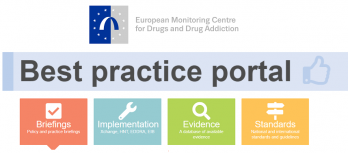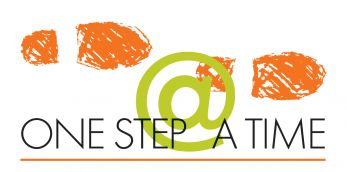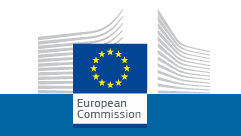"Women have their own characteristics in which it is necessary to think when public policy on drugs is developed"
ReturnPublished on 15/01/18
Ledy Andrea Zúñiga Rocha was nominated as Ministry of Justice, Human Rights and Workship in 2014. A former member of the Ministry of Home Affairs and the Secretary of Transparency. Lawyer of profession, her experience in defending the fundamental rights of priority groups such as those deprived of liberty, women, children and adolescents, enables her to take on the challenge of generating and implementing public policies aimed at the protection of citizens in the context of the prevention of problematic drug use at the Technical Secretary of drugs of Ecuador (SETED)

- With the creation of the SETED and implementation of the National Plan for the Prevention of Drug Use for the period 2017-2021, what are currently the main axes of drugs policy in Ecuador?
The main axes of drugs policy in Ecuador are developed through the National Plan for Comprehensive Prevention and Control of the socio-economic phenomenon of Drugs 2017-2021, which bases its action on two central axes which are:
- Drugs demand reduction that includes all strategies related to health promotion, comprehensive prevention, comprehensive care, risk and harm reduction and social inclusion.
- Supply reduction, which includes all the actions of interdiction and control of the production, sale, diversion of precursors, trafficking of licit and illicit drugs.
It is envisaged that these two axes should be worked on in a coordinated and complementary manner, in order to achieve the overall objective for the next four years: to avoid, delay and reduce the consequences of the socio-economic phenomenon of drugs.
These axes are cross-cut by components that are taken into account in all the actions developed from them, which are: Social co-responsibility, evidence and scientific knowledge on the socio-economic phenomenon of drugs, International Cooperation, communication, regulation.
- What is the role of the Ecuadorian Drug Observatory in advancing the Ecuadorian drug policy, and how can COPOLAD contribute to the impulse of its functions?
The Drug Observatory, called for national purposes Ecuador Drug Research and Evidence Center, has the mission to "generate and disseminate, permanently and timely, knowledge and truthful and objective information on the socio-economic phenomenon of drugs, which serves as a basis for the formulation of public policies in the field". These functions are based on the need to attend to values such as transparency, integrity, independence, responsibility, impartiality, and excellence. In this way, this area contributes to the advancement of the Ecuadorian drug policy through:
- Establishment and consolidation of the National Drug Information System
- Generation of analyses and studies on the socio-economic phenomenon of drugs on a territorial, national and regional scale
- Integration of all population sectors as subjects of study, including hidden and vulnerable populations.
- Articulation of the correct dissemination of the research carried out by the different sectors of society, including academia, governmental and non-governmental organizations, civil society organizations, among others.
- Strengthening monitoring, surveillance, and evaluation of programmes and interventions related to the socio-economic phenomenon of drugs.
In this sense, the COPOLAD Programme, is a relevant actor for the fulfillment of the objectives of the area, by means of assistance and technical advice in each one of the strategies established above, especially through the strengthening of the National Drug Information System, the generation of analyses and studies and the strengthening of the processes of monitoring, surveillance and evaluation of drug policy.
- What is the importance of the media in preventing drug abuse among young people and adolescents?
The drugs problem tends to occupy a prominent place in the media. This is how the media serve as support to all kinds of 'preventive' campaigns.
With their information they reinforce the established values, thus becoming a powerful resource of public opinion in the society. Nor can we forget that the media are often the main source of information on drugs, especially young people and at the same time, they are a powerful instrument of influence in the behaviour of people.
- The COPOLAD programme returns in 2018 to Ecuador on the occasion of the celebration of the 2nd COPOLAD II Bi-Regional Dialogue Meeting in the area of drugs supply reduction. How can COPOLAD help strengthen the control policies in the region?
The COPOLAD II programme, has an advantage, and that is that it gathers countries of the CELAC and the European Union. This allows the experiences and realities of several countries to converge in order to obtain minimum policies that respond to the supply of drugs. We believe that Ecuador is an enabling scenario for several countries in the region and the world to discuss drug policies, in addition to contributing to our experience in the field.
- You, Dr. Ledy Zúñiga, are the first woman to direct the highest drug-related agency in your country. In your experience, how can inclusion of the gender approach in drugs policies help promote fundamental rights in areas such as security, justice, or health
The gender approach is vital to the implementation of public drug policy because the inequalities that have been generated historically towards women have an effect even in this area, women are more prone to violence when their partner or surrounding people are consumers. "Violence against women, especially those exerted by their partners and sexual violence, constitutes a serious public health problem and a violation of women's human rights." (WHO, 2016) In relation to consumption, it is known that -globally- women take longer to start it, but once started, they progress more quickly towards dependence. At present, the harmful consequences of consumption in women are affecting a greater proportion than in males.
The relationship between violence and substance dependence is bidirectional. They are inter-influenced or related in a positive way (an increase of one variable increases the other). Women ask for less help when they have a problem of consumption, because they are usually the caregivers of the family and if we do not have specialized services for their characteristics (like places to leave the children, allow them to attend the sessions with them, to evaluate situations of violence, abuse, abuse of power, etc.), they will not access them. Globally, among women in drug dependency treatment, 55-99% have suffered some type of trauma (sexual/child physical abuse, domestic violence) so it is essential to include it in the comprehensive care provided by health services.
In conclusion, women have their own characteristics in which it is necessary to think when public policy is developed that helps to prevent situations that lead to consumption, as well as that once they need comprehensive care, they have all the facilities to access the services for their recovery.
In relation to drugs supply reduction, It is important to have a gender approach, because many women enter the penitentiary system because of micro-traffic, usually because of the need to support their families, as part of the National Plan's Preventive Alternative Development Strategy productive ventures focused on mothers at risk of engaging in drug-related illicit activities will be developed, so we make sure that the money from these businesses are invested in the families that need it the most.
The European Commission is preparing a third phase of this programme, therefore COPOLAD will be back at the beginning of 2021.









